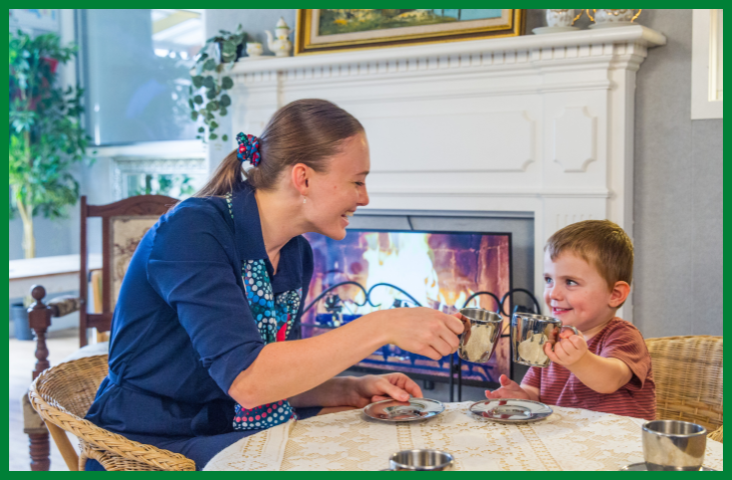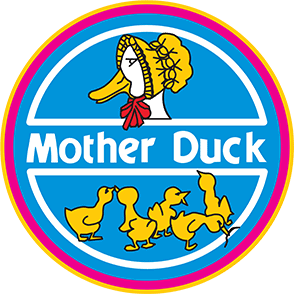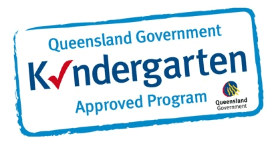
The Documentation Question
How and why we document children’s learning is an ongoing topic of discussion in Early Childhood. There are a lot of factors to consider and a number of stakeholders interested in our documentation that sometimes makes it hard to balance out the needs of everyone!
Our curriculum, led by our Chief Curriculum Officer and Pedagogical Coordinators, has been carefully considered and refined over many years to ensure that we are supporting the needs of our educators, respecting the learning journey of our children, and clearly communicating with our families.
In collaboration with our Mother Duck Manly Pedagogical Coordinator, Mr. Richard, I have outlined some of the whys behind the decisions Mother Duck has made regarding what we record about your child’s learning.
1. What documentation do we need to have:
We are required under our regulations to maintain documentation regarding each child’s learning and contributions to the curriculum. There are so many ways to achieve this requirement. There has been a big push in the last 5 years or more, to move our documentation to a digital platform. Mother Duck has seriously considered this option several times over the years, have met with so many software providers, and have had so many discussions at a committee level – and every time we come back to the same answer. There isn’t software that can capture how we do, what we do. We can absolutely see the convenience for families of their child’s documentation being accessed through an app. It is immediate and direct – but it doesn’t support our educator’s job satisfaction, and the apps we have explored in the past don’t respect the children’s learning journey. So, for the moment, pens, paper, and discussions between educators are the foundation of our documentation process.

2. Prioritising time spent with children vs time spent online:
We are always talking about screen time, balancing our children’s time online or in front of the tv with experiences and exploration in the real world. When it comes to children’s documentation, the same argument can be made for our educator team. It would come as no surprise to anyone that the amount of paperwork that our educators need to complete as part of their regular duties can be overwhelming.
It became Mother Duck’s mission to find a way to reduce the time educators were spending behind a screen doing paperwork – while still making our work meaningful and informative. At the end of the day, we are here for the children, and we decided it was much more important for our children to form strong and secure relationships with educators who were available to them than it was to expect mountains of documentation about the curriculum. We changed our focus from quantity to quality and realigned our intent behind what we document.
3. Educator Satisfaction:
Our amazing team of educators chose their profession to work alongside and support young children. They didn’t choose this career to spend their workdays sitting behind a computer doing paperwork. Our educator team raised concerns over 6 years ago that they were overwhelmed at the amount of paperwork that was expected from them and that the level of documentation that we expected was unrealistic – to the point we lost many great educators from the profession due to burnout. We knew we had to do something about it. We didn’t want our educators to feel this way and we really wanted our educators to feel fulfilled in their careers.
Through our research into online documentation processes, we realised that half of an educator’s day can be spent away from the studios uploading photos for individual children rather than interacting with them. We made the decision that we would rather the educators be with the children to support and guide them in their daily rituals and play.
Since then, we have developed a documentation system that is collaborative – every educator in the centre plays a role in the documentation of children’s learning. Our documentation tells a story of teaching and learning and is meaningful to ensure that we are engaging in assessment and reflection of the environment and experiences on offer to children to ensure we are always improving and customizing our approaches to best support the children’s interests and ideas.

4. What moments are we capturing – and why?
It is important to step back, critically reflect and look at the way we capture documentation and what this means for children. Traditionally educators would walk around with iPad and cameras snapping every move or interaction to ensure there was at least one photo of each child each day (or whatever the specific documentation requirement was).
Now if we think about what this looks like from a child’s perspective, we get a harsh reality that we are not considering how this must feel for children. How would you feel if you were followed around all day every day being interrupted by someone with a camera taking photos of you in various situations, without really being consulted? Not only would I feel uneasy at what photos were being taken of me – but I would end up being really annoyed that my work was being documented when maybe I wasn’t ready to share my work – and that’s before we even think about how it feels to be constantly interrupted and never being able to really think deeply about what I am doing!
Now, at Mother Duck, we don’t have any of these types of documentation requirements and we are really examining the consent processes with children and respecting their wishes on what we share and how children can be involved in what is shared.
5. How children learn to be reflective of our documentation:
Two principles behind how children learn have had a huge influence on how we document and share children’s learning. The first is that children learn in collaboration with their peers. So, the idea that each child needs to have individual documentation contradicts this theory. Exploring children’s journey of learning involves not only ‘what’ they did, but how they did it and who they did it with. The conversations that accompanied the learning and the challenges faced along the way need to be documented with as much attention as the final outcome.
The second principle is that children learn gradually over time. A foundational practice at all Mother Ducks is to slow down, so it would be contradictory to then be taking constant happy snaps, posting to an app daily, and rushing each child’s experience of learning.
Children don’t learn things in a single day – they learn from repetition, revisiting ideas and experiences and processing this learning in the context of their current understandings. Documentation is to communicate what the service provides for all children – it is what we call “making teaching and learning visible”. This process happens slowly and our stories of teaching and learning are created over an extended period of time – so that we have a story to tell, the children have had time to show what they are learning and how they are learning these new skills and concepts. Our documentation needs to be reflective of how children learn and supportive of our curriculum choices.

6. What is the purpose of our documentation?
As I was saying before, our documentation takes time as children experience the environment and resources in their own time, but we also believe that children’s learning is best served when viewed from multiple perspectives. Each educator in the centre plays a role in the documentation of children’s learning and this is so that we can view the same concepts interpreted by different people. The way I might view an interaction or experience could be vastly different from another educator’s interpretation.
These multiple perspectives are vital to developing a curriculum that is considered and intentional. In order to do this, educators need to come together to compare and discuss their understanding of the children’s play – this cannot happen daily. Our curriculum and way of documenting give us the opportunity to dig deeper discuss and debate the intent behind the children’s expressions with less focus on photos.

As well as displaying stories of teaching and learning, educators also take time to regularly develop summaries of each child’s progress. These are in the form of our formative and summative assessments. Again, these are developed over time – time is given to the children to investigate and explore the world around them and for educators to really get to know each child and have a story to tell – not just make a split-second assumption of what ‘might’ be happening in children’s play just to make sure that a predetermined number of photos and observations have been completed each day.
Although our documentation might be a slower process – at Mother Duck, we feel that we are finding a better balance between documenting the journey of children’s learning and being able to focus the majority of our time on the most important aspect of early childhood – the children in our care.
Until next time,
Miss Cathy


